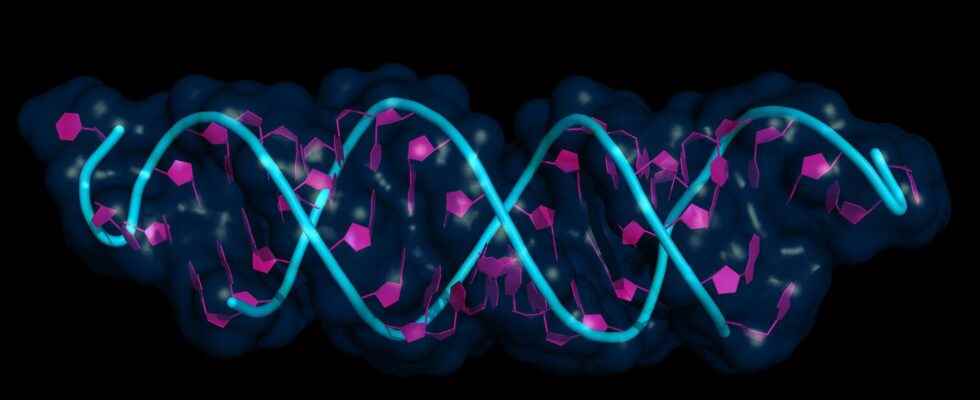Covid-19 is a very mysterious disease … Some will be asymptomatic while some will have a simple cold and others will end up in intensive care and die of the disease. But it would seem possible today to predict the risk of dying from Covid-19 thanks to a simple blood test!
You will also be interested
[EN VIDÉO] Covid-19: how long does immunity last? The amount of antibodies in SARS-CoV-2 infected patients varies dramatically over time and across people. © Futura
Today, even though risk factors have been identified such as obesity, diabetes, trisomy 21 …), it is not possible to identify with certainty which are the people who will develop a severe form of the disease. A study published on November 26 in the journal ScienceAdvances looked at three potential biomarkers present in the blood of patients.
Methodology of the study
The patients included in the study (n = 279) were hospitalized for infection with Covid-19 symptomatic with a PCR test positive. The blood was analyzed eleven days after the start of the symptoms. Three groups were formed:
- a first group of 61 patients including 29 requiring mechanical ventilation (critical subgroup) and 32 not requiring (non-critical subgroup);
- a second group of 87 patients;
- a third group of 69 patients.
The first group is a “discovery” group, the second is a validation group, and the third is a confirmation group. A group of 50 uninfected people was formed to act as a witness. The primary endpoint was survival 60 days after onset of symptoms.
Viral RNA is the best predictor
The authors looked at three elements in the blood of patients:
- the amount ofViral RNA,
- the quantity of pro-inflammatory proteins,
- the amount ofantibody anti-SARS-CoV-2.
Each time, they first used the “discovery” group, then the other two groups to validate and confirm the observed trends.
The amount of viral RNA in the blood was greater in critical patients than in non-critical patients while it was non-existent in the control group (uninfected patient). Even more interesting, the amount of viral RNA was greater in the blood of deceased patients compared to non-deceased patients (critical and non-critical patients). This observation was also found when comparing only critical patients.
The authors then analyzed in the blood of patients a series of 26 protein involved in immune response. An algorithm combining the amount of each protein has been developed and has been named “CytoScore”. Thus, patients with an elevated CytoScore eleven days after the onset of symptoms are more likely to have a severe form of the disease, or even to die from it, within 60 days for the highest scores, while those with a lower score have a higher chance of making a non-critical form of the disease.
The amount of viral RNA in the blood is able to predict mortality
The authors also analyzed the amount of anti-SARS-CoV-2 antibodies in the blood of patients. Unlike the first two analyzes, there were no differences between the critical patient and non-critical patient groups.
Among the different markers evaluated in this study, the amount of viral RNA in the blood was the most likely to predict mortality 60 days after the onset of symptoms. Identifying the patients most at risk is extremely important in order to offer them appropriate care.
Interested in what you just read?
.
fs6
